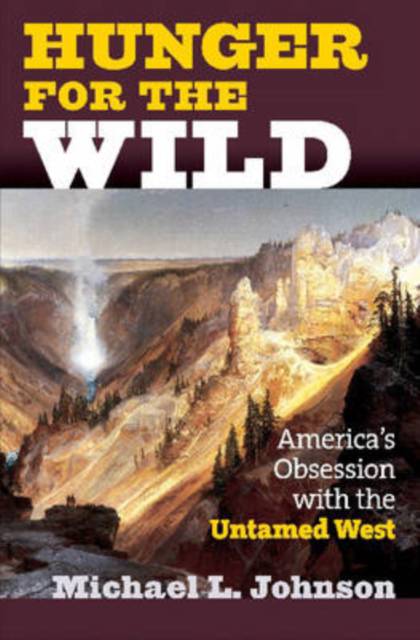
- Afhalen na 1 uur in een winkel met voorraad
- Gratis thuislevering in België vanaf € 30
- Ruim aanbod met 7 miljoen producten
- Afhalen na 1 uur in een winkel met voorraad
- Gratis thuislevering in België vanaf € 30
- Ruim aanbod met 7 miljoen producten
Prijzen
Omschrijving
Spur Award, Western Writers of America, Finalist
A Kansas Notable Book
Just what was so wild about the Wild West?
Americans have had an enduring yet ambivalent obsession with the West as both a place and a state of mind. Now one of the most knowing observers of the Western scene offers a monumental cultural and historical analysis of how ideas of wildness have shaped the ways Euro-Americans have perceived, reacted to, and acted upon the West for nearly five hundred years. Bringing the sensibility of a poet to a sweeping discussion of place, Michael L. Johnson considers how that obsession originated, how it has determined attitudes toward and activities in the West, and how it has changed over the centuries.
Investigating views of Western wildness from pre-European times until the present, Johnson tells how explorers and settlers bent on exploiting the West brought with them Old World ideas, full of muddled and even bizarre contradictions, that have defined the region in its most fundamental aspects. And he shows how those contradictory ideas were woven into an ambivalent ideology of conquest that has given us today's degraded wilderness areas, overtaxed water supplies, and sprawling suburbs.
Brimming with word-play, personal anecdotes, and telling vignettes, Hunger for the Wild provocatively addresses a cornucopia of Western personalities, phenomena, and events. Invoking a vast array of writers and thinkers--from Claude Levi-Strauss to Black Elk to Richard Etulain--Johnson casts his critical eye on conquistadors and cowboys and revisits myths of Noble Savage and "red devil" alike. His kaleidoscopic text examines Dust Bowl woes and Wild West shows, and whether contemplating the Disneyfied frontier or the Ralphlaurenized range, he takes readers on an intellectual romp through the wilds of the contemporary West, with its UFO fanatics and postregional cowgirls.
Emphasizing his call for seeing the West as "a place of roots as well as routes," Johnson's tour de force marks a major contribution to the deeper history of the region and points toward a more sustainable West for the future. It should interest not only Western historians but also art and film buffs, ecocritics, cross-cultural specialists, and rodeo fans--anyone fascinated by the wild, Western-style.
Specificaties
Betrokkenen
- Auteur(s):
- Uitgeverij:
Inhoud
- Aantal bladzijden:
- 552
- Taal:
- Engels
Eigenschappen
- Productcode (EAN):
- 9780700615018
- Verschijningsdatum:
- 14/03/2007
- Uitvoering:
- Hardcover
- Formaat:
- Genaaid
- Afmetingen:
- 164 mm x 241 mm
- Gewicht:
- 975 g

Alleen bij Standaard Boekhandel
Beoordelingen
We publiceren alleen reviews die voldoen aan de voorwaarden voor reviews. Bekijk onze voorwaarden voor reviews.













